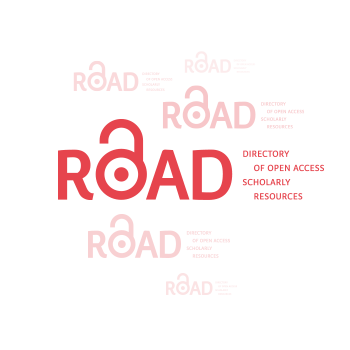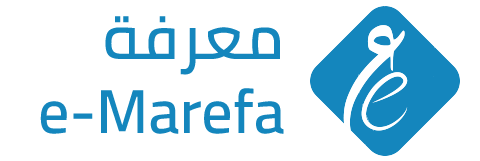The Role of Digital Technology in Developing School Leadership - A Field Study in the Schools of Jerusalem Governorate
DOI:
https://doi.org/10.59994/pau.2025.2.133Keywords:
Digital Technology, School Leadership, Administrative Planning, Administrative Guidance, Digital CommunicationAbstract
This study aims to analyze the role of digital technology in enhancing school leadership through a field study conducted in schools across the Jerusalem governorate. The research focused on three main areas: administrative planning, administrative guidance, and digital communication. It sought to measure the extent to which these technologies are employed to improve school leaders’ administrative performance. The researcher adopted a descriptive analytical approach, and a questionnaire consisting of 30 items was administered to a sample of 128 school principals. The results revealed a high level of digital technology utilization in school leadership across all domains, with an overall mean score of 3.92. The administrative planning domain ranked highest with a mean of 3.94, highlighting the use of AI tools in data analysis and future planning. The administrative guidance domain scored a mean of 3.83, reflecting reliance on digital tools for performance evaluation and feedback. Digital communication scored the highest mean (3.99), indicating strong awareness among school leaders of the importance of technological integration in enhancing the school’s communication environment. Statistically significant differences were found in principals’ perceptions based on gender and years of experience, favoring female leaders and those with more than 16 years of experience. No significant differences were observed based on academic qualification. The study concluded with several key recommendations, including strengthening digital integration in school leadership, developing ongoing professional training programs for leaders and teachers, activating community engagement through digital platforms, and keeping pace with AI advancements—while considering individual differences in digital empowerment programs to ensure effective educational leadership. This study represents a valuable contribution by focusing on the unique educational context of Jerusalem and linking school leadership dimensions with digital technology in light of contemporary theoretical frameworks, thus addressing a current research gap.
Downloads
References
المراجع العربية:
الشهراني، سها. (2023). استخدام قادة المدارس الثانوية بمدينة أبها الحضارية التقنيات الحديثة في تطوير العمليَّات الإدارية. مجلة التربية-كلية التربية بالقاهرة، 42(198)، 487-529.
العدوان، تغريد. (2023). تطوير المهارات القيادية لمديري المدارس الحكومية في ضوء مهارات التحوّل الرقمي (دراسة ميدانية بمديرية تربية لواء الجامعة). المجلة العلمية لكلية التربية- جامعة أسيوط، 39(1)، 206-228.
المراجع العربية بنظام الرومنة:
Alshhrany, Sha. (2023). astkhdam qadh almdars althanwyh bmdynh abha alhdaryh altqnyat alhdythh fy ttwyr al'emlyَat aledaryh. mjlh altrbyh-klyh altrbyh balqahrh, 42(198), 487-529.
Al'edwan, Tghryd. (2023). ttwyr almharat alqyadyh lmdyry almdars alhkwmyh fy dw' mharat althwl alrqmy (drash mydanyh bmdyryh trbyh lwa' aljam'eh). almjlh al'elmyh lklyh altrbyh- jam'eh asywt, 39(1), 206-228.
المراجع الأجنبية:
Agustina, R., Kamdi, W., Hadi, S., et al. (2020). Influence of the Principal’s Digital Leadership on the Reflective Practices of Vocational Teachers Mediated by Trust, Self Efficacy, and Work Engagement. International Journal of Learning, Teaching and Educational Research, 19(11), 24–40.
AITSL. (November 2023). Evaluating the evidence for educational technology: Part 1 – the technologies. Australian Institute for Teaching and School Leadership, Retrieved from www.aitsl.edu.au/
AlAjmi, M. K. (2022). The impact of digital leadership on teachers’ technology integration during the COVID-19 pandemic in Kuwait. International Journal of Educational Research, 112, 10-19.
Antonopoulou, H., Halkiopoulos, C., Barlou, O., et al. (2020). Leadership Types and Digital Leadership in Higher Education: Behavioural Data Analysis from University of Patras in Greece. International Journal of Learning, Teaching and Educational Research, 19(4), 110–129.
Antonopoulou, H., Halkiopoulos, C., Barlou, O., et al. (2021). Associations between Traditional and Digital Leadership in Academic Environment: During the COVID-19 Pandemic. Emerging Science Journal, 5(4), 405–428.
Asante, K., & Novak, P. (2023). When the push and pull factors in digital educational resources backfire: the role of digital leader in digital educational resources usage. Education and Information Technologies, 29(6), 6553–6578.
Asif, M., Yang, L., & Hashim, M. (2024). The Role of Digital Transformation, Corporate Culture, and Leadership in Enhancing Corporate Sustainable Performance in the Manufacturing Sector of China. Sustainability, 16(7), 2651.
Bass, B. M., & Riggio, R. E. (2006). Transformational leadership (2nd ed.). Mahwah, NJ: Lawrence Erlbaum Associates.
Bass, B. M., & Riggio, R. E. (2006). Transformational leadership (2nd ed.). Mahwah, NJ: Lawrence Erlbaum Associates.
Cifuentes, L., Maxwell, G., & Bulu, S. (2023). Technology Integration through Professional Learning Communities. Journal of Educational Computing Research, 44(1), 59-82.
Dexter, S. (2011). The impact of technology integration on educational leadership practices and school improvement efforts. Journal of Research on Technology in Education, 43(3), 255–284.Ellis, M. L., Lu, Y. H., & Fine-Cole, B. (2021). Digital learning for North Carolina educational leaders. TechTrends, 65(5), 696-712.
Ghamrawi, N., & M. Tamim, R. (2023). A typology for digital leadership in higher education: the case of a large-scale mobile technology initiative (using tablets). Education and Information Technologies, 28(6), 7089–7110. https://doi.org/10.1007/s10639-022-11483-w
Heifetz, R. A., Grashow, A., & Linsky, M. (2009). The practice of adaptive leadership: Tools and tactics for changing your organization and the world. Boston, MA: Harvard Business Press.
Heifetz, R. A., Grashow, A., & Linsky, M. (2009). The practice of adaptive leadership: Tools and tactics for changing your organization and the world. Boston, MA: Harvard Business Press.
https://doi.org/10.1111/bjet.12846
https://www.sciencedirect.com/science/article/pii/S2666784325000622
Jassim, S. (2024). Educational innovation and leadership: Shaping the future of learning. Academy of Educational Leadership Journal, 28(2), 1-3
Karakose, T., & Tülübaş, T. (2024). School Leadership and Management in the Age of Artificial Intelligence (AI). Educational Process: International Journal, 13(1), 7-14.
Karakose, T., Demirkol, M., Yirci, R. (2023). A Conversation with ChatGPT about Digital Leadership and Technology Integration: Comparative Analysis Based on Human–AI Collaboration. Administrative Sciences, 13(7), 157.
Karakose, T., Yirci, R., & Papadakis, S. (2022). Exploring the interrelationship between digital leadership roles and school administrators in the age of artificial intelligence. Sustainability, 14(4), 2164. https://doi.org/10.3390/su14042164
Mandinach, E. B., & Gummer, E. S. (2016). What does it mean for teachers to be data literate: Laying out the skills, knowledge, and dispositions. Teaching and Teacher Education, 60, 366–376.
Mandinach, E. B., & Gummer, E. S. (2016). What does it mean for teachers to be data literate: Laying out the skills, knowledge, and dispositions. Teaching and Teacher Education, 60, 366–376. https://doi.org/10.1016/j.tate.2016.07.011
Msila, V. (2022). Higher Education Leadership in a Time of Digital Technologies: A South African Case Study. International Journal of Information and Education Technology, 12(10), 1110–1117.
Peng, Y., Alias, B. S., Mansor, A. N., & Ismail, M. J. (2024). Charting the evolving landscape of digital leadership in education: A systematic literature review. Journal of Infrastructure, Policy and Development, 8(8), 5925.
Tsai, Y. S., Poquet, O., Gašević, D., Dawson, S., & Pardo, A. (2019). Complexity leadership in learning analytics: Drivers, challenges and opportunities. British Journal of Educational Technology, 50(6), 2839–2854.
Vroom, V. H., & Jago, A. G. (2007). The role of the situation in leadership. American psychologist, 62(1), 17-24.
Vroom, V. H., & Jago, A. G. (2007). The role of the situation in leadership. American Psychologist, 62(1), 17–24. https://doi.org/10.1037/0003-066X.62.1.17
Zhang, Y., Dewitt, D., & Cheah, K. S. L. (2025). Virtual Reality for Sustainable and Responsible Pedagogy in Art and Design Education: A Systematic Review of Motivation and Digital Leadership. Cleaner and Responsible Consumption, 9, 100137.
Downloads
Published
How to Cite
Issue
Section
License
Copyright (c) 2025 Journal of Palestine Ahliya University for Research and Studies

This work is licensed under a Creative Commons Attribution 4.0 International License.
مجلة جامعة فلسطين الاهلية للبحوث والدراسات تعتمد رخصة نَسب المُصنَّف 4.0 دولي (CC BY 4.0)











